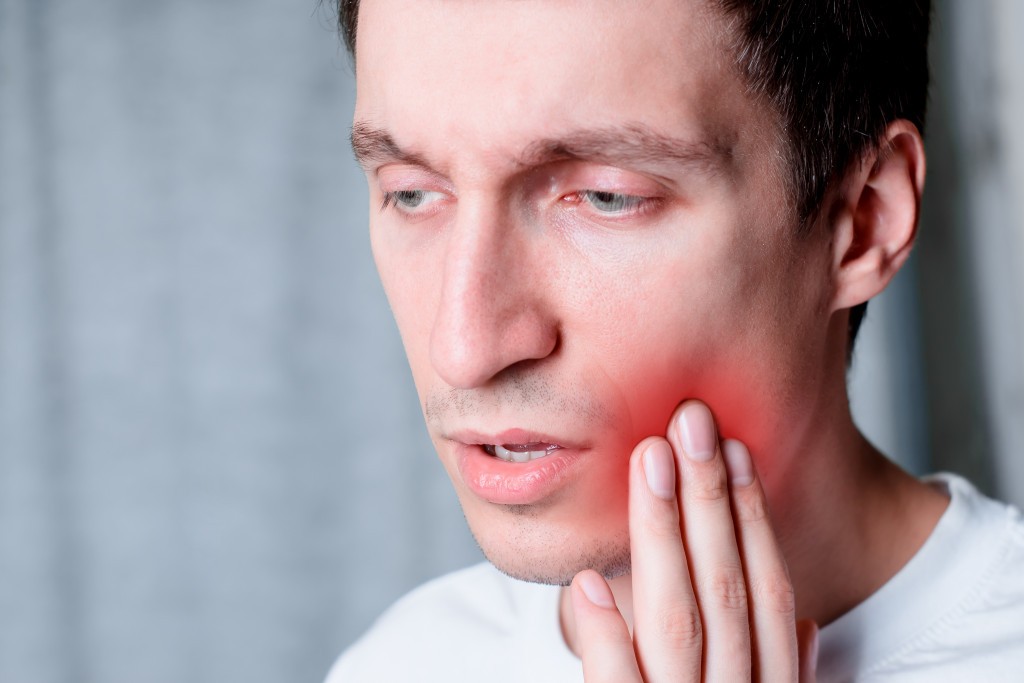Headache is usually not a cause for concern. It is a common experience that most people will have at least once throughout their lives. Around 75 percent of adults around the world have had a headache in the past year. It is one of the most frequent reasons behind absenteeism in the workplace. Although not often a condition that requires immediate medical attention, a headache can still negatively affect a person’s life. Chronic headaches can lead to anxiety and depression among sufferers.
A headache also is not a single condition. There are around 150 types of headaches, and they all fall into two categories: primary and secondary. Primary headaches are not caused by another medical condition. Secondary headaches, on the other hand, happen when it is a symptom of something else.
One cause of secondary headache is your teeth. While they are far apart and seemingly not connected, a problem with your teeth can also impact and send waves of pain to the rest of your head.
Your Wisdom Teeth: The Problem Child
The wisdom tooth is the root of many oral problems. It is tucked too far into your mouth that, often, your toothbrush could not reach it and clean it properly. As a result, it leads to decay.
However, your wisdom tooth can also be a cause of headaches in various ways. First, it can cause discomfort and pain while it is emerging. Second, it can cause headaches when it grows improperly.
An impacted wisdom tooth is a tooth that either emerged on an angle, got stuck within the jaw, or pushed against other molars. All three cause pain, including headaches. Most people decide to get wisdom tooth surgery to remove it and prevent it from causing more pain.
Unfortunately, one cannot prevent a wisdom tooth from growing imperfectly. However, regular visits to your dentist can prevent more pain. In addition, your dentist can monitor its emergence and identify potential problems before symptoms occur.
Toothache Leads to Migraines

Migraine is more than just a painful headache. It is a neurological condition that is debilitating and can negatively impact regular life. About one billion people around the world suffer from it. In Singapore, more than 10 percent of the population has it. Some experts believe that many cases of migraine can be traced back to the teeth.
Toothaches are no joke. They are very painful to the point that a person who experiences them becomes unable to perform daily tasks. It can also affect sleep and eating meals. And, if the pain has grown so severe, it can lead to migraines.
When a migraine is caused by toothaches, your dentist will be able to help. Addressing the problem, which is likely tooth decay, will also get rid of headaches. Your dentist might perform fluoride treatment if it is still in its early stages. If the tooth is damaged beyond repair, an extraction is in order.
When Gritting Your Teeth Becomes a Real Headache
Bruxism can lead to pain, including headaches. Headaches that occur in the morning are usually signs that the person clenches their teeth at night while asleep. However, headaches caused by bruxism can also occur at the end of the day because the person clenches their teeth throughout the day.
Because, most of the time, bruxism happens unconsciously, it can be harder to diagnose. The definite sign that you are grinding and gritting your teeth are flattened incisors. Look at your teeth in the mirror. If your cuspids do not have a nice point, it is probably because you have levelled it down through bruxism.
When to Rush to the Hospital
Headache, although very common, should not be ignored. There are times when a headache needs to be addressed by a medical professional. If, for example, the headache is more severe than usual and no longer improved by over-the-counter medicine, it should be checked right away. It could be a sign of an underlying illness. A headache that also comes with other symptoms such as high fever, confusion, trouble seeing, trouble speaking, and nausea and vomiting, requires immediate medical intervention.
Your teeth can cause headaches and vice versa. They can be painful to the point that they can be dangerous. To prevent secondary headaches caused by oral problems, you need to take better care of your mouth. Practice proper dental hygiene habits such as brushing your teeth twice or thrice a day. Don’t forget to visit your dentist at least once a year and follow their advice. This way, you can avoid painful conditions.

